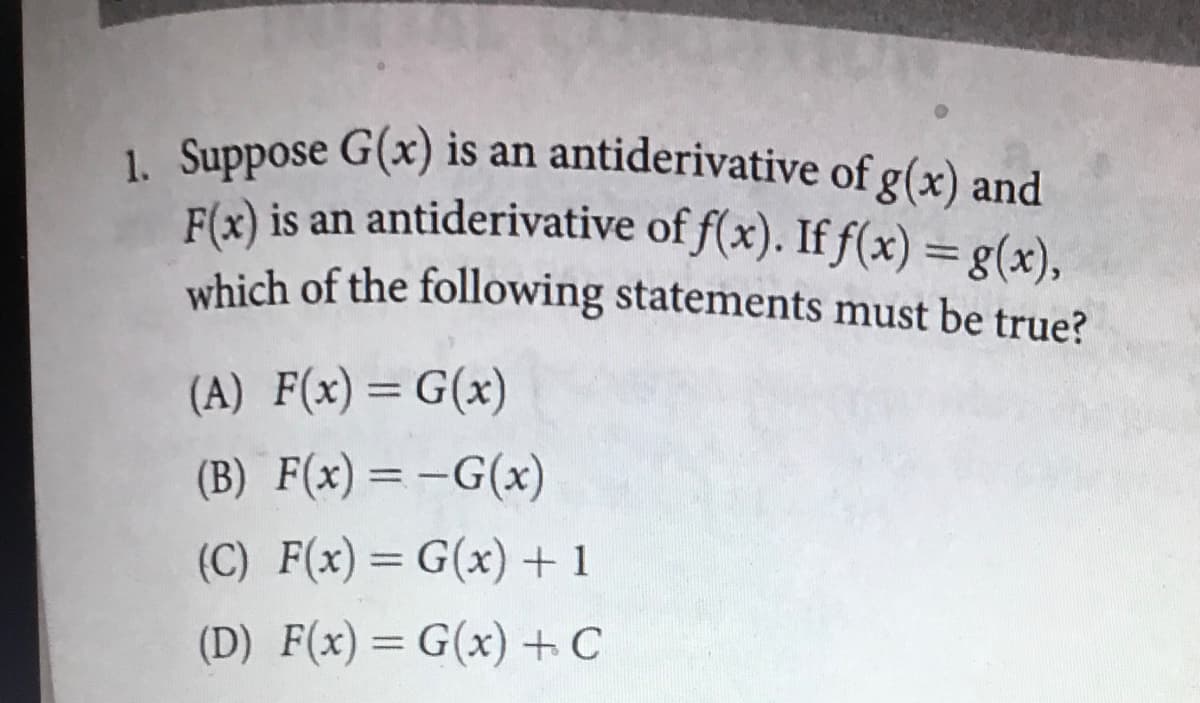1. Suppose G(x) is an antiderivative of g(x) and F(x) is an antiderivative of f(x). If f(x) = g(x), which of the following statements must be true? %3D (A) F(x)= G(x) (B) F(x)=-G(x) (C) F(x) = G(x) + 1 %3D (D) F(x)= G(x) + C %3D
1. Suppose G(x) is an antiderivative of g(x) and F(x) is an antiderivative of f(x). If f(x) = g(x), which of the following statements must be true? %3D (A) F(x)= G(x) (B) F(x)=-G(x) (C) F(x) = G(x) + 1 %3D (D) F(x)= G(x) + C %3D
Algebra & Trigonometry with Analytic Geometry
13th Edition
ISBN:9781133382119
Author:Swokowski
Publisher:Swokowski
Chapter5: Inverse, Exponential, And Logarithmic Functions
Section5.6: Exponential And Logarithmic Equations
Problem 64E
Related questions
Question
100%

Transcribed Image Text:1. Suppose G(x) is an antiderivative of g(x) and
F(x) is an antiderivative of f(x). If f(x) = g(x),
which of the following statements must be true?
(A) F(x)=G(x)
%3D
(B) F(x)=-G(x)
|
(C) F(x)= G(x)+ 1
%3D
(D) F(x)= G(x) + C
Expert Solution
This question has been solved!
Explore an expertly crafted, step-by-step solution for a thorough understanding of key concepts.
This is a popular solution!
Trending now
This is a popular solution!
Step by step
Solved in 2 steps with 1 images

Knowledge Booster
Learn more about
Need a deep-dive on the concept behind this application? Look no further. Learn more about this topic, calculus and related others by exploring similar questions and additional content below.Recommended textbooks for you

Algebra & Trigonometry with Analytic Geometry
Algebra
ISBN:
9781133382119
Author:
Swokowski
Publisher:
Cengage

Algebra & Trigonometry with Analytic Geometry
Algebra
ISBN:
9781133382119
Author:
Swokowski
Publisher:
Cengage